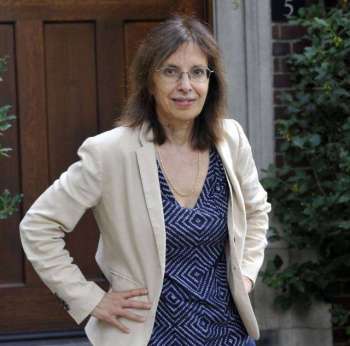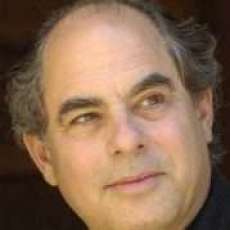Jacqueline Stone is a specialist in medieval and modern Japanese Buddhism, along with death and dying in Buddhist cultures at Princeton University, and vice president of the editorial board of the Kuroda Institute for the Study of Buddhism. Among her publications are Original Enlightenment and the Transformation of Medieval Japanese Buddhism (University of Hawaii Press 1999), winner of a 2001 American Academy of Religion Award for Excellence in the Study of Religion, The Buddhist Dead: Practices, Discourses, Representations (University of Hawaii Press 2007, with Bryan J. Cuevas), and Right Thoughts at the Last Moment: Buddhism and Deathbed Practices in Early Medieval Japan (working title, University of Hawaii Press, forthcoming). Her other areas of research include Buddhism and nationalism and traditions of the Lotus Sutra, particularly the Tendai and Nichiren schools.
NEWS
Buddhist Scholars Jacqueline Stone and Matthew Kapstein Enter American Academy of Arts and Sciences
SEATTLE—In an announcement that places them alongside former US president Barack Obama, acting legend Tom Hanks, Supreme Court judge Sonia Sotomayor, and author/essayist Ta-Nehisi Coates, Princeton University professor of religion Jacqueline Stone and University of Chicago scholar of Buddhism Matthew T. Kapstein were awarded entry into the American Academy of Arts and Sciences this year. Stone and Kapstein are among 177 Fellows and are joined by 36 International Honorary Members.
The academy, established in Massachusetts in 1780, is one of the oldest learned societies in the United States, the founders of which include such luminaries as John Adams, Samuel Adams, and John Hancock. It currently has approximately 4,900 Fellows and 600 International Honorary Members. Its purpose, as outlined in its charter is “to cultivate every art and science which may tend to advance the interest, honor, dignity, and happiness of a free, independent, and virtuous people.” (American Academy)
 Jacqueline Stone. Photo by Mark Czajkowski. From princeton.edu
Jacqueline Stone. Photo by Mark Czajkowski. From princeton.edu Matthew Kapstein. From divinity.uchicago.edu
Matthew Kapstein. From divinity.uchicago.eduMatthew Kapstein’s areas of expertise are Indian philosophy and the Buddhist traditions of Tibet at the University of Chicago, where he holds the position of Numata Professor of Buddhist Studies. He is also on the faculty of the Ecole Pratique des Hautes Etudes in Paris, where he directs a research team devoted to Tibetan studies. His books include Buddhism in Contemporary Tibet: Religious Revival and Cultural Identity (University of California Press 1998), The Presence of Light: Divine Radiance and Religious Experience (University of Chicago Press 2004), The Tibetan Assimilation of Buddhism: Conversion, Contestation, and Memory (Oxford University Press 2002), and Reasons Traces: Identity and Interpretation in Indian & Tibetan Buddhist Thought (Wisdom Publications 2001). He is also an accomplished photographer, with work on Tibet in Black and White; featured by the Shelley and Donald Rubin Foundation.
Remarking on Kapstein’s work, Phyllis Granoff writes that, “Matthew Kapstein has that rare gift of being able to make even the most arcane philosophical arguments seem both easily understandable and startlingly relevant.” (Reason’s Traces, back cover) Over the years Kapstein has worked with the Tibetan Himalayan Digital Library Project, based at the University of Virginia, as well as alongside the His Holiness the Dalai Lama.
The two scholars are among a group of 10 in the “Philosophy and Religious Studies” section, alongside Robert Audi of the University of Notre Dame, Bernard R. Boxill of the University of North Carolina at Chapel Hill, John J. Collins of Yale Divinity School, James H. Cone of Union Theological Seminary, Robert Gooding-Williams of Columbia University, and Patricia W. Kitcher of Columbia University, as well as International Honorary Members Lilli Alanen of Uppsala University in Sweden and Jennifer Hornsby of the University of London.
Membership in the academy is honorary. Nevertheless, the group serves as something of a think tank whose “projects and publications generate ideas and offer recommendations to advance the public good.” (Chicago Sun Times)
See more
Charter of Incorporation of the American Academy of Arts and Sciences (American Academy)
Himalayan Art of Matthew T. Kapstein (Shelley and Donald Rubin Foundation)
Four faculty, alumna Sotomayor elected members of American Academy of Arts and Sciences (Princeton University)
Univ. of Chicago Buddhism scholar gets national honor with Obama, Hanks, others (Chicago Sun Times)
Related news from Buddhistdoor Global
Harvard, Oxford to Offer Pali Reading Courses
Four North American Universities Join New Global Network of Buddhist Studies
Chinese Buddhism the Focus of a New Study at University of Arizona
Center for Buddhist Studies Opens at the University of Arizona, Tucson














